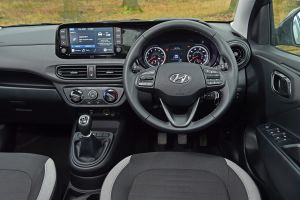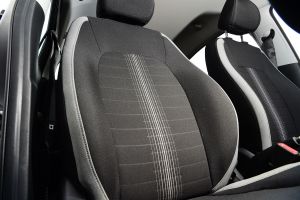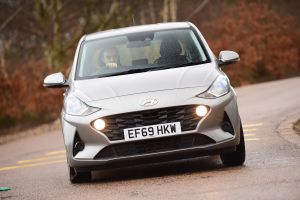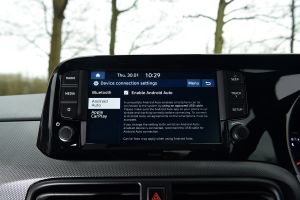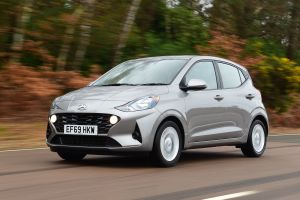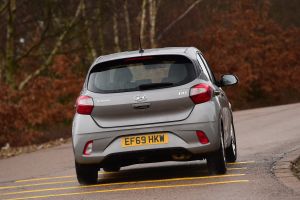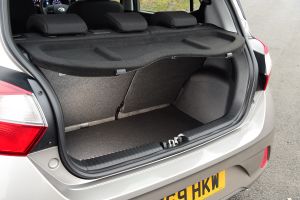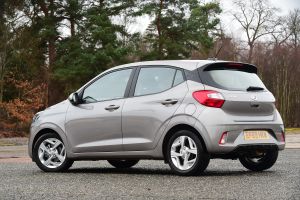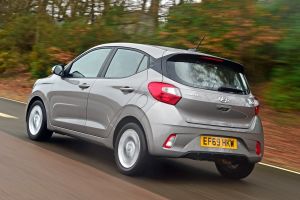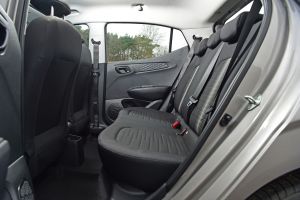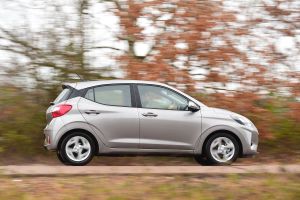The Hyundai i10 is a strong contender in a shrinking city car market. Improvements to on-board tech, more cabin space and a sleeker, sportier look will entice some, but the i10 still can’t compete with rivals on performance and running costs.
The i10 feels comfortable on the move and should fit seamlessly into daily life, although high prices and a drab interior will count against it - particularly with those style-conscious customers looking for a funky urban runabout.
About the Hyundai i10
Hyundai has decided to give the i10 a real push as a city car contender. Beneath the restyled body, this third-generation model sits on an all-new platform, which sees an increase in width and a slightly lowered stance.
It all makes for a sportier look, while the Korean manufacturer has also managed to conjure up a 40mm longer wheelbase, meaning more interior space. Updated on-board tech is also welcome and helps make the five-door i10 feel more up-to-date.
- SEE MORE Best city cars to buy 2020
Although the i10’s city car competition has reduced in number, it’s still vital that the i10 is able to prove itself against the alternatives. Models like the impressive Kia Picanto and petrol-engined Volkswagen up! will be in the thinking of many buyers and so will the battery-powered e-up! and SEAT Mii Electric rivals.
Affordability is key for city car customers and the cheaper Toyota Aygo, Citroen C1 and Peugeot 108 triplets will prove tempting on that score. So will less expensive versions of larger superminis from the class above, which tend to trump city cars for size and sophistication.
The i10 range features three standard petrol engine options, with no hybrid or fully-electric versions available. A 1.0-litre, three-cylinder MPi unit with 66bhp is the entry point to i10 ownership, followed by a 1.2-litre four-cylinder engine, producing 83bhp. The top-of-the-range 1.0 T-GDi delivers 99bhp. All cars feature a five-speed manual gearbox, while the 66bhp and 83bhp variants also offer an automated manual transmission.
The trim level range comprises SE, SE Connect and Premium versions, with the sporty N-Line trim only offered in combination with the 1.0 T-GDi engine. Standard kit includes Bluetooth, a DAB radio, and a multi-function steering wheel, although you have to spec SE Connect or above to benefit from the 8.0-inch touch screen and smartphone connectivity.
Ultimately, though, sales success will come down to price and, with an entry point of almost £13,000, the i10 arguably doesn’t represent the value it once did. For a small premium you could find yourself in the star of the supermini class - the high-quality Renault Clio.
